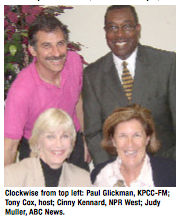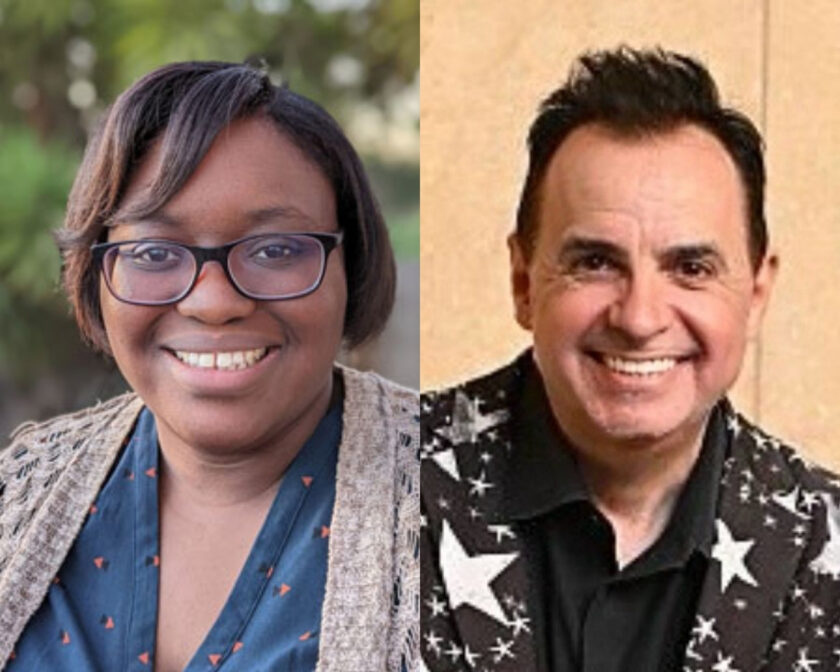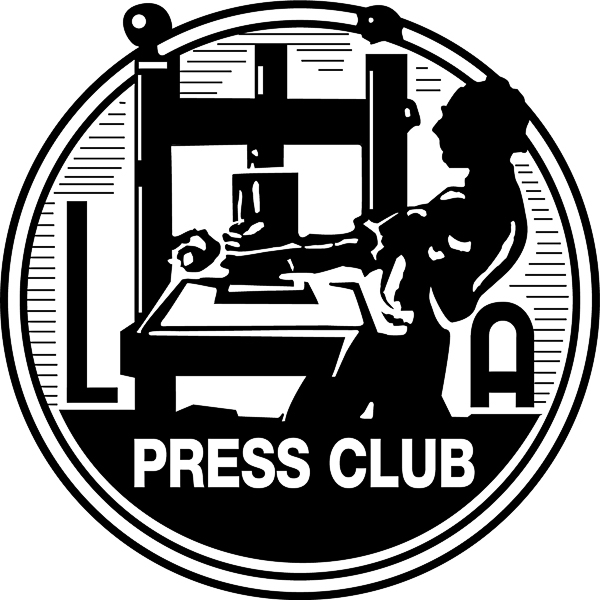Thursday, June 17, 2004 6:40 PM
BY JORDI ORTEGA
What a great journalism class. No one who paid $10 to attend the May 5 event at Press Club headquarters in Hollywood left unhappy. Panelists tackling the topic, “The superficial and the scandalous: Are jour- nalism schools to blame?” organized by the club and Cal State Los Angeles, agreed that journalism schools are not to blame for the shameful problems emerging in journalism—-but newsrooms probably are.
Sitting at the experts‚ table were Judy Muller, ABC News correspondent and USC professor; Paul Glickman, KPCC public radio’s news director; Cinny Kennard, NPR West general manager, and host and Cal State LA Professor Tony Cox. The panel, before an audience of about 35 journalists, was arranged by Press Club Board member Jon Beaupre, also a Cal State LA professor. The radio recording equipment was on and the camera of Los Angeles channel 36 was rolling.

Glickman opened fire, cautioning us that journalists must learn “first, to be crit- ical.” We must “question the conventional wisdom that is told,” he said, “or you will become a very pedestrian journalist.”
He said that the study of liberal arts is the key. Muller suggested areas such as English and political science.
“I don’t think the tough questions are being asked now,” she said. Glickman gave as an example the widely similar U.S. coverage of Fallujah, Iraq. “We were going to strike, and from one day to the next the U.S. withdraws. What happened there? We have only one version, the U.S. Army’s, but what about the 27 other questions?”
“In Vietnam, they asked the questions late,” expressed Muller, who stated that “to be a teacher at this moment is an underground guerrilla movement.”
The veteran journalist gave a tip to always keep in mind: “Suspend your judgment. You have to get into the mind of the person you are interviewing or you just can’t report well.”
“Keep your bias out,” continued Glickman, recognizing that “there is no way to have a totally objective view.” If you want do this job right, you must be “as fair and balanced as possible,” he said.
Kennard also noted that journalists have the “extraordinary responsibility to give voice to who isn’t in the news every night: children, the poor, the elderly,” addressing the crucial topic of media agenda-setting as the conscious decision that it is.
One audience member asked the pan- elists how the profession should deal with editors who tend to manipulate the news, who “ask their journalists to be sheep,” and who tell reporters who think different- ly from the pack: “How come you say things that nobody else says?” This topic requires a panel discussion of its own.
None of these three successful pan- elists studied journalism for their college degree. However, they emphasized practicing and teaching journalism with the authority that critical thinking, honesty and experience provides—-three requirements as fundamental to creating good journalists as is teaching calculation to engineers. Unfortunately, these qualities don’t seem to be top priorities in the media market today.



